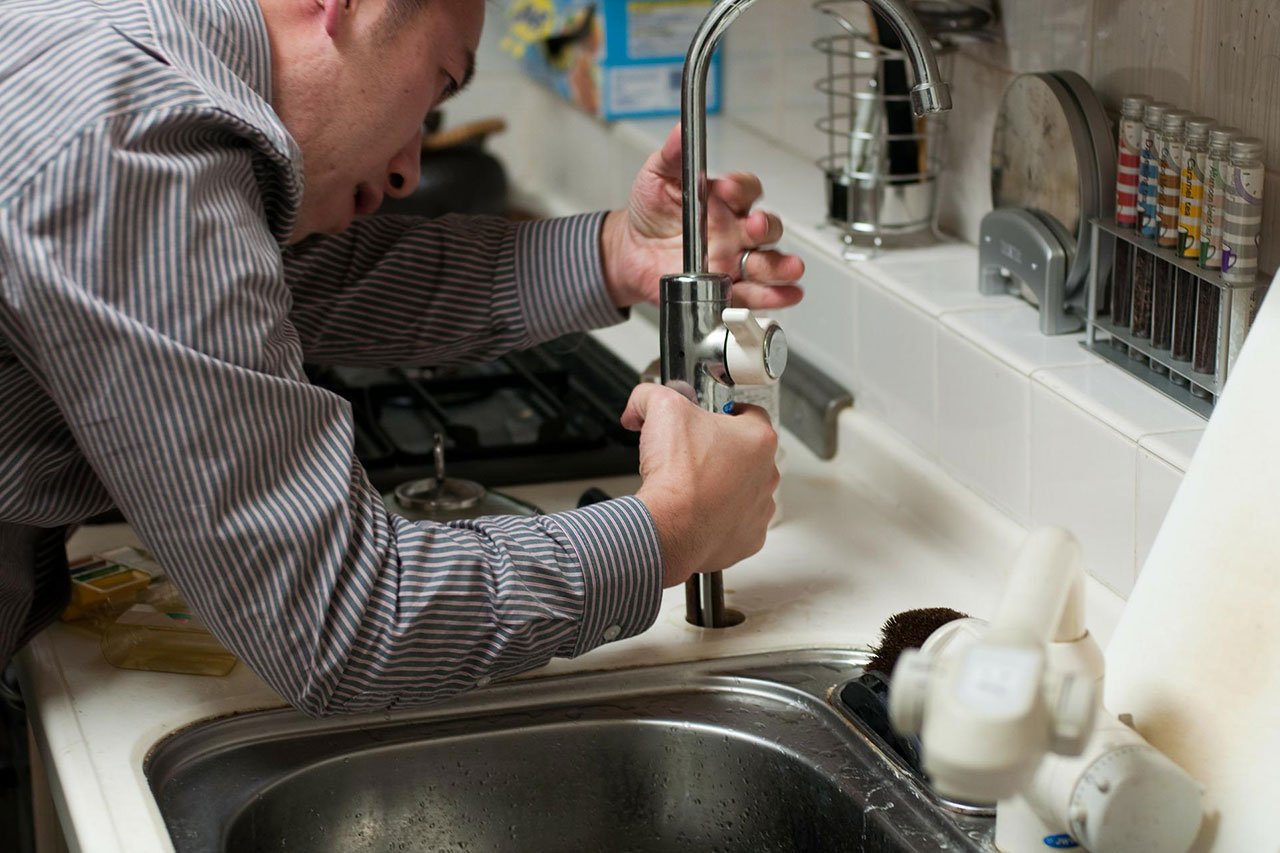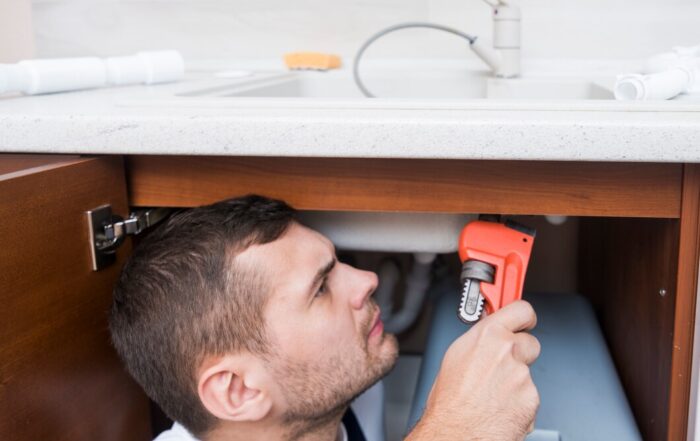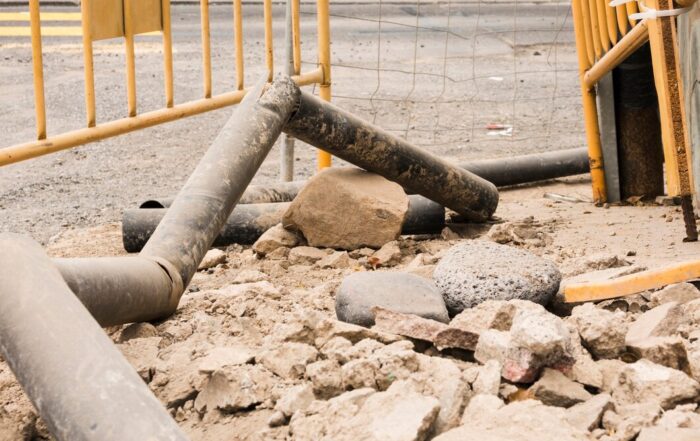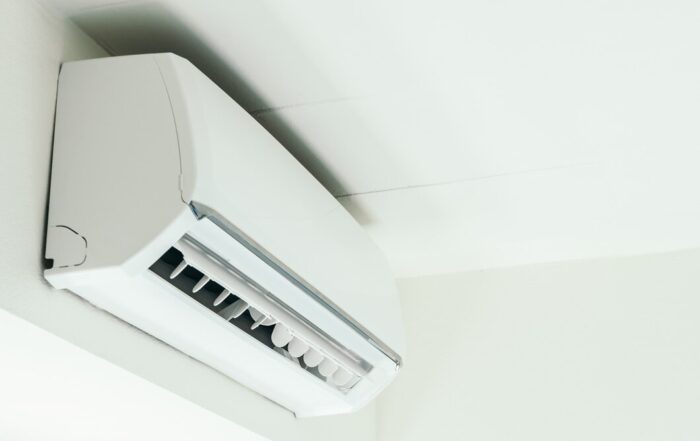
Emergencies typically warrant panic, with all common sense thrown out the window. The stakes are high when you’re faced with water rushing out of a burst pipe or a basement full of valuables flooding quickly.
How you react in a plumbing emergency can save you thousands of dollars in further water damage or property destruction. Keep in mind there’s a big difference between a water leak and a dripping faucet. Read on to learn precisely how to act in a plumbing emergency to minimize damage and keep your costs down.
How to Prevent Water Damage in a Plumbing Emergency
Minor inconveniences can turn into major emergencies if you attempt a DIY fix instead of following the recommended steps for any plumbing problem. After all, you wouldn’t Youtube how to pull your own teeth, right? Some things are better left to the professionals.
Turn off the water.
Your first step should be shutting off the problem at the source. If you’re dealing with a fixture such as a faucet or a toilet, try turning off those valves first. Suspecting a bigger problem? You’ll need to shut off the water to the house ASAP.
If you’re reading this article in a panic and don’t know where your water valves are, that’s ok. Depending on your neighbourhood, the main shut-off valve could be located inside the home, possibly in the basement, utility room, garage or near the water meter.
Remember the term, righty-tighty, lefty-loosey? The same principle applies to shut the water off by cranking it to the right. If you’re dealing with a lever valve, you’ll need to turn it 90 degrees.
When facing a flood, you’ll want to turn off the electricity too. If the water comes in contact with outlets or power cords, it can be disastrous, and you’ll need to avoid the water damage at all costs until an emergency plumber has remedied the problem. Otherwise, you may be in for a shock – all too literally.
Shut down the water heater.
If you turn off the main water valve, you should immediately switch off your water heater to minimize any damage. When water is no longer being provided, the heating element in a water heater should not be left on since this might cause the element to burn out.
In rare cases, leaving the heater on may result in a dangerous build-up of pressure in the tank. An explosion might occur if the relief valve malfunctions. It’s a good idea to know how to turn off the gas if your water heater is functioning strangely and you smell a strange odour. Know where your gas line’s main valve is situated and how to turn it off. Some valves may be turned by hand, while others need the use of a specific wrench. If yours is one of the latter, have a wrench handy near the valve in case something goes wrong.
Believe it or not, if the gas concentration is high enough, even static electricity from your clothing might create an explosion. You should evacuate the home from any pets or people and contact 911 if the smell of gas is strong.
Call an expert for help.
A plumbing emergency without a plan in place can quickly cause panic due to the overwhelming situation that unfolds rapidly. A call to your local emergency plumber can save you stress, more mess, and money by getting to the root of the problem right away. Be as detailed as possible, and if you can, take some pictures to share with them. It’ll also come in handy when communicating with your insurance provider later.
Drain the water.
Turning off the water heater and the main valve are crucial first steps, but they won’t drain the water that’s already inside your pipes. You’ll need to turn on your outdoor spigots and direct the water away from the home’s foundation. You can use a hose to do this!
Technically, you could drain the water by turning on a faucet and letting it run dry, but it could make things worse, depending on the source and severity of the water damage.
Contain the water damage.
Water damage can seep into all the cracks and crevices of your home, making a delayed clean-up more challenging. Reacting fast is crucial for mitigating any further damage and preventing more issues, such as mould, mildew, or structural problems.
If you notice water pooling, grab a towel or mop and begin to clean it up to prevent further damage. If the problem involves wastewater (grey or black water), make sure you’re wearing appropriate safety gear, such as shoes and goggles. Remove any valuable items from the floor or surfaces that water may soon be able to reach.
Water damage can do significant damage to your property very quickly. It is important that you act fast to reverse any problems it can create with a delayed impact. Plugging in a fan or dehumidifier might also speed up the drying process, provided the outlet in the area is safe to use. Mould can be prevented by using a fan to circulate air in the space.
Plumbing emergencies don’t need to end in household catastrophes if you stay calm and follow these steps without attempting a DIY fix. Follow your gut and call a local plumber you can trust to walk you through it. If you’re worried about further water damage to your home, Plumbing and Heating Paramedics is available 24/7, serving Calgary and the surrounding areas.
Have you ever faced a serious plumbing problem? How much damage did it cause? Were you able to stop it from getting worse? Share your experience with our readers to help them stay proactive during a plumbing emergency.
Call us at (403) 452-2911 or Book Now an appointment.
Effective Solutions to Common Drain and Blockage Problems
A well-functioning plumbing system is crucial for maintaining a clean, comfortable, and hygienic home. However, drain and blockage issues can disrupt this delicate balance, causing inconvenience and potential damage to your property. As a [...]
Sewage System Problems: Causes, Symptoms, and Solutions
For many homeowners, dealing with sewage system problems can be a daunting experience. Besides the unpleasant nature of the issue, it can also pose severe health risks and cause significant damage to your property. [...]
Choosing the Best AC Unit for Your Home: Key Factors and Expert Assistance
Home comfort during Calgary's warm summer months relies heavily on having a reliable and efficient air conditioning system. If you're considering a new AC installation, it's essential to carefully evaluate your options, taking into [...]





